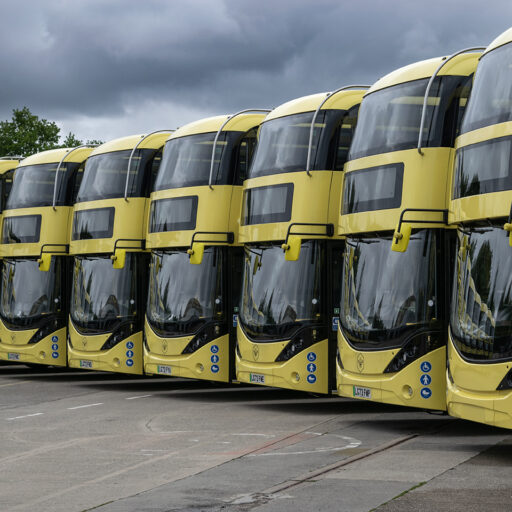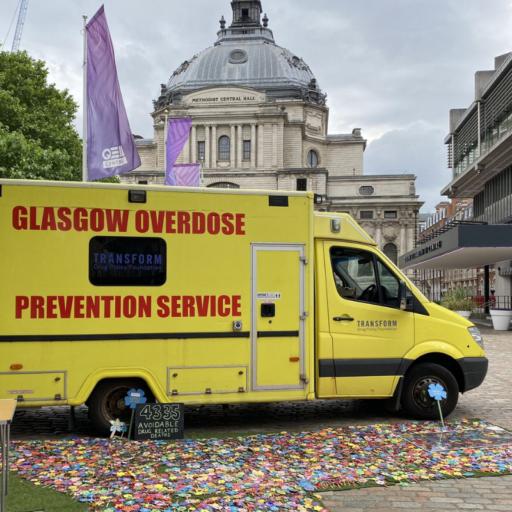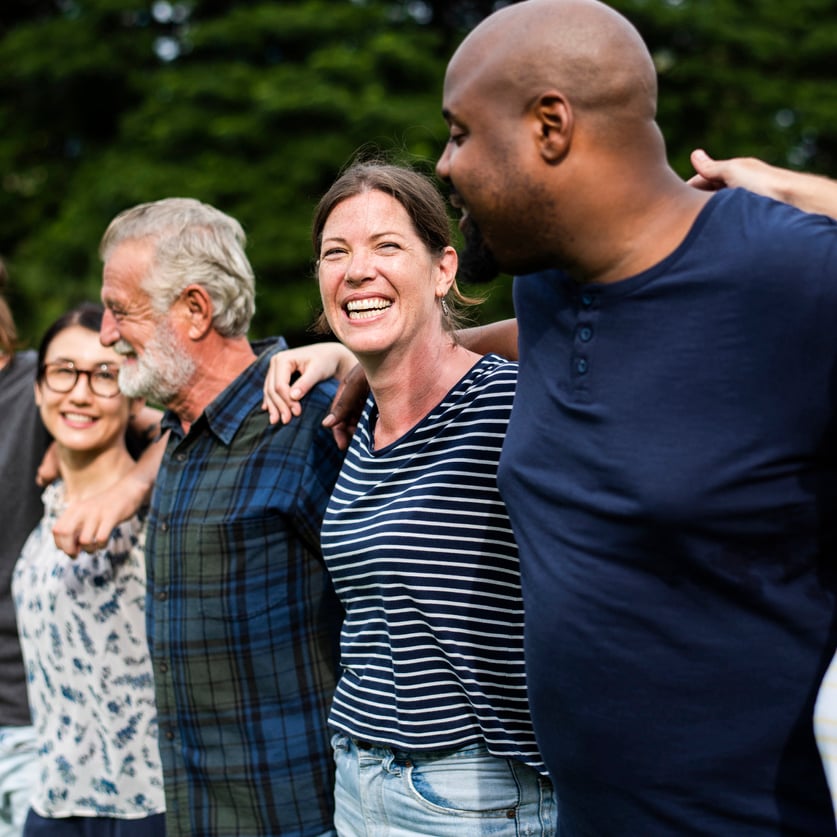Cartoonists designed a warm welcome to refugee children, there was a breakthrough on long Covid, plus more good news
This week’s good news roundup

“Spectacular” growth in clean energy is keeping the planet on a slim path to hitting the 1.5C target, the world’s energy watchdog announced this week.
The International Energy Agency updated its benchmark Net Zero Roadmap, which was originally published in 2021. New findings reveal that despite the energy sector spewing record carbon emissions in 2022, hope lies in the rapid deployment of green technologies.
“There are legitimate reasons to be cheerful,” said IEA executive director Faith Birol. “The path to the 1.5 degree target is narrowing on the one hand, but the spectacular increase in clean energy is keeping the door still open.”
The news chimes with a fresh forecast from UN-backed responsible investor network the PRI. It says that, based on tracking of more than 300 global climate policies planned for implementation by 2050, the world will meet the sub-2C target set in the Paris climate agreement.
“The economic transition to net zero is well under way,” said Nathan Fabian, PRI’s chief sustainable systems officer.
Image: Thomas Richter

Indigenous communities in Brazil had reason to celebrate this week after winning a historic battle over land rights.
The agribusiness-backed ‘time limit trick’ argued that Indigenous peoples in South America’s largest nation could only claim territories they physically occupied in 1988, when Brazil’s constitution was signed.
However the proposal was voted down nine to two by members of Brazil’s supreme court. The ruling now paves the way for scores of land claims from communities who were previously driven from ancestral homelands during Brazil’s military dictatorship.
Fiona Watson, research and advocacy director with human rights charity Survival International, hailed the decision as “a massive defeat for the agribusiness lobby”.
Dinamam Tuxá, executive coordinator of Brazilian national Indigenous organisation APIB, added: “We remain mobilised; we continue to fight because we need to ensure and protect the rights of Indigenous peoples.”
Image: Tukumã Pataxó/Apib

Greater Manchester has become the first place in England to take back public control of its buses after 40 years, with the launch of the Bee Network this week.
Manchester Mayor Andy Burnham said the move was a “coming of age moment for devolution” as the first bright yellow-liveried buses rolled out of a depot near Bolton.
It’s hoped the new network – which includes 50 electric buses (pictured) – will help reverse the decline in bus travel seen since services were privatised everywhere outside of London in the 1980s.
Operating initially in Bolton, Wigan and in parts of Salford and Bury, the network cuts the cost of joint bus and tram journeys by 20 per cent, say those behind it. It’s part of grander plans for a low-cost, integrated public transport system, complemented by what promises to be the UK’s biggest walking and cycling network.
“Greater Manchester is blazing a trail for other city-regions who are ready to follow our lead in reversing the failed bus deregulation experiment,” said Burnham.
Image: TfGM

There’s hope – and recognition – for millions of people who have long Covid, after scientists discovered key differences in the blood of those with the condition.
The breakthrough has been welcomed by many as definitive proof that long Covid is a biological illness, and paves the way for a blood test for the sometimes-debilitating condition, which causes symptoms including chronic fatigue, headaches and brain fog.
Scientists from Yale and Mount Sinai universities in the US examined blood samples from 268 people: some who had had Covid-19 but recovered, some who had never been infected, and others with ongoing symptoms. Their work was published on Monday in a report on Nature.com
They discovered that, in people with long Covid, immune system cells acted irregularly, and dormant viruses were reactivated. Patients were also found to have lower levels of cortisol hormone, which could explain their fatigue.
“We were looking for signals, and we found them,” Akiko Iwasaki from Yale’s school of medicine told NBC News. “Now what we need to do is home in on each of these signals and understand better how the disease has been driven by these signals.”
Image: CDC

The UK’s first safer drug consumption room (DCR) pilot has been given the go-ahead in Glasgow following years of campaigning and a rethink on laws criminalising possession.
NHS and council officials agreed the measure on Wednesday as a way to tackle Scotland’s drug deaths crisis.
The £2.3m pilot will operate from an existing health centre in Glasgow’s east end, providing a safe, supervised and private location for users to inject illegal drugs. Staff trained in overdose prevention will be on hand to offer support.
The measure was made possible after Scotland’s chief law officer agreed it was not in the public interest to prosecute DCR users for drug possession.
Drug reform activist Peter Krykant, who previously set up a mobile, unsanctioned, ‘overdose prevention service’ in Glasgow (pictured), told Positive News he was “overjoyed” at the decision. “I want to see these facilities set up in cities across Scotland and the UK,” he said.
Image: Peter Krykant

Images of a collapsing glacier, a gorilla’s hand (pictured) and an Indonesian cafe scene are among the winners in this year’s awards by photo printing company Cewe – the world’s largest free-to-enter photography competition.
For 2023, avid amateurs and pro snappers alike took the phrase ‘our world is beautiful’ as inspiration to enter their top shots in categories including sports, food and nature.
Judges had the task of picking the winners from more than half a million shots, and photographer Ariani Dikye from Indonesia won the top prize.
“We are once again delighted by the unbroken enthusiasm for photography,” said Cewe board member Thomas Mels.
Non-profit SOS Children’s Villages was another contest winner. For every entry, Cewe gifts 10 cents to the development organisation, donating over €2m {£1.6m) to date in a decade-long partnership.
Image: Claudia Räss

Illustrators are raising an objection with the UK government – and a smile among refugee children – with a colouring book for young migrants
Immigration minister Robert Jenrick sparked outrage in July when he ordered the removal of Mickey Mouse and Jungle Book mural artwork at a centre for unaccompanied children.
So Fleet Street cartoonist Guy Venables, whose work appears in the likes of Metro, Private Eye and the Spectator, rallied colleagues from The Professional Cartoonists Organisation to devise a well-aimed response.
Community campaign group 38 Degrees raised funds for printing and distribution and the result is a 62-page colouring book: Welcome to Britain, which will be given free to children newly arriving in the UK.
Contributors include Terry Gilliam, Quentin Blake and stalwarts from the likes of Viz and the Beano. Venables told Positive News that a second, larger book was in the works for sale at Christmas, with the proceeds going to refugee charities.
“I’ve always found that if you act with kindness in these situations, only good will come out of it,” he said. “If kids grow up here, and the first thing that happens to them is positive, then there’s definitely some good to be had.”
Image: Henny Beaumont/PCO

Toxin-resistant bugs are being brought back from the dead to help clean up polluted water.
The humble water flea, which is actually a crustacean, filters out pharmaceuticals, pesticides, and industrial chemicals from waste water.
Populations can lay dormant for centuries but researchers from the University of Birmingham in England have revived strains that are particularly resistant to pollution, and devised a way to incorporate them into water treatment plants.
Study lead author and University of Birmingham PhD student Muhammad Abdullahi said the nature-inspired technology was “potentially revolutionary”.
“By preventing these chemicals from being discharged, we can protect our environment and biodiversity,” he said.
Image: Manu Schwendener

Greening urban spaces brings in positive impacts worth thousands of pounds per person, according to a new report from an adviser to the levelling up secretary Michael Gove.
Nicholas Boys Smith heads the Office for Place in Gove’s department and is also chair of thinktank Create Streets.
Its Greening Up report calls for a ‘national mission’ to re-green towns and cities, and suggests giving citizens the power to plant saplings and other greenery in public spaces.
It also shows how building small parks in urban areas brings a range of positive impacts, valued at almost £6,495 per person living within 500 metres. They include reduced mortality (which is valued at £2,999) and lower rates of depression, which is worth £750 according to the report.
Introducing the study, Carlos Moreno, initiator of the ‘15-minute city’ concept and a professor at Sorbonne University, wrote: “Greening our cities is urgent; it is our duty, it is our obligation.”
Image: Robert Bye
Main image: laughingmango/iStock
You’re the solution that Positive News needs
Our small, dedicated team is passionate about building a better alternative to the negative news media. And there’s never been a greater urgency to our mission.
But to invest in producing all the solutions journalism that the world is longing for, we need funding. And because we work in your interests – not those of a wealthy media mogul or corporate owner – we’re asking readers like you to get behind our team, by making a regular contribution as a Positive News supporter.
Give once from just £1, or join 1,200+ others who contribute an average of £3 or more per month.
Join our community today, and together, we’ll change the news for good.




